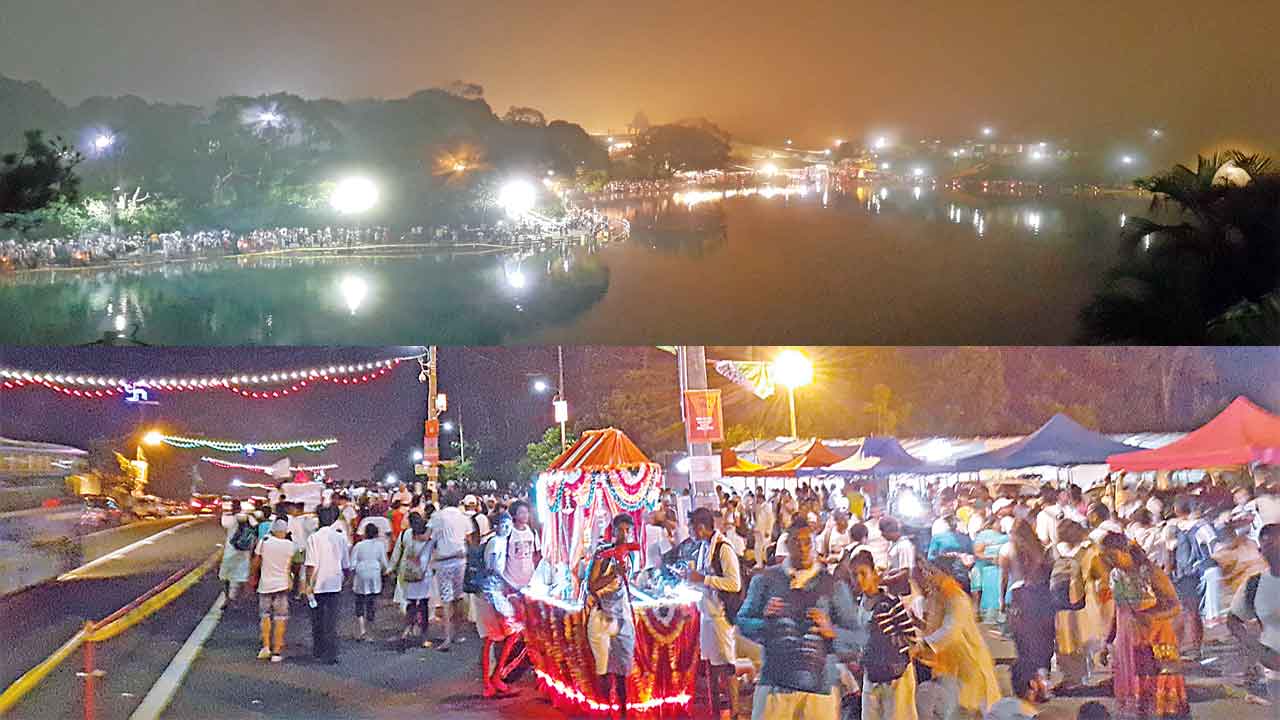
Maha Shivaratri is a Hindu festival celebrated annually in honour of the God Shiva. There is a Shivaratri in every luni-solar month of the Hindu calendar, on the month’s 13th night /14th day, but once a year in February/March and before the arrival of spring, marks Maha Shivaratri which means “the Great Night of Shiva”.
It is a major festival in Hinduism, but one that is solemn and marks a remembrance of “overcoming darkness and ignorance” in life and the world. It is observed by remembering Shiva and chanting prayers, fasting, doing Yoga and meditating on ethics and virtues such as self-restraint, honesty, noninjury to others, forgiveness and the discovery of Shiva. Devotees keep awake all night. Others visit one of the Shiva temples or go on pilgrimage to Jyotirlingams. This is an ancient Hindu festival whose origin date is unknown.

Maha Shivaratri is an annual festival dedicated to the Hindu God Shiva, and is particularly important in the Shaivism tradition of Hinduism. Unlike most Hindu festivals which are celebrated during the day, the Maha Shivaratri is celebrated at night. Furthermore, unlike most Hindu festivals which include expression of cultural revelry, the Maha Shivaratri is a solemn event notable for its introspective focus, fasting, meditation on Shiva, self study, social harmony and an all night vigil at Shiva temples.
The celebration includes maintaining a “jaagaran”, an all-night vigil and prayers, because Shaiva Hindus mark this night as “overcoming darkness and ignorance” in one’s life and the world through Shiva. Offerings of fruits, leaves, sweets and milk to Shiva are made, some perform all-day fasting with vedic or tantrik worship of Shiva, and some perform meditative Yoga. In Shiva temples, “Om Namah Shivaya”, the sacred mantra of Shiva, is chanted through the day.

The “Chaar Pahar ke Puja” is a special prayer done during Maha Shivaratri whereby devotees chant the name of the Lord from dawn to dusk on the 24th February. During this night, prayers are held every 3 hours all night long.
Pilgrims will set out as from this week-end or early next week to walk towards the Ganga Talao, a sacred lake for local Hindus thought to be connected with the Ganges river. During the pilgrimage, devotees will carry “Kanwars” made of bamboo and richly decorated while chanting the Lord’s name during the journey. It is a very colourful festival with a special feel to it.
Upon reaching the sacred lake, devotees will perform their rituals and prayers. After this, they will collect holy water and bring it to their place of residence for the Maha Abhishek to be performed on 24th February. By undertaking this pennace and focusing one’s mind on Lord Shiva, anyone can attain “Moksha” that is liberation from material attachments.
 J'aime
J'aime














